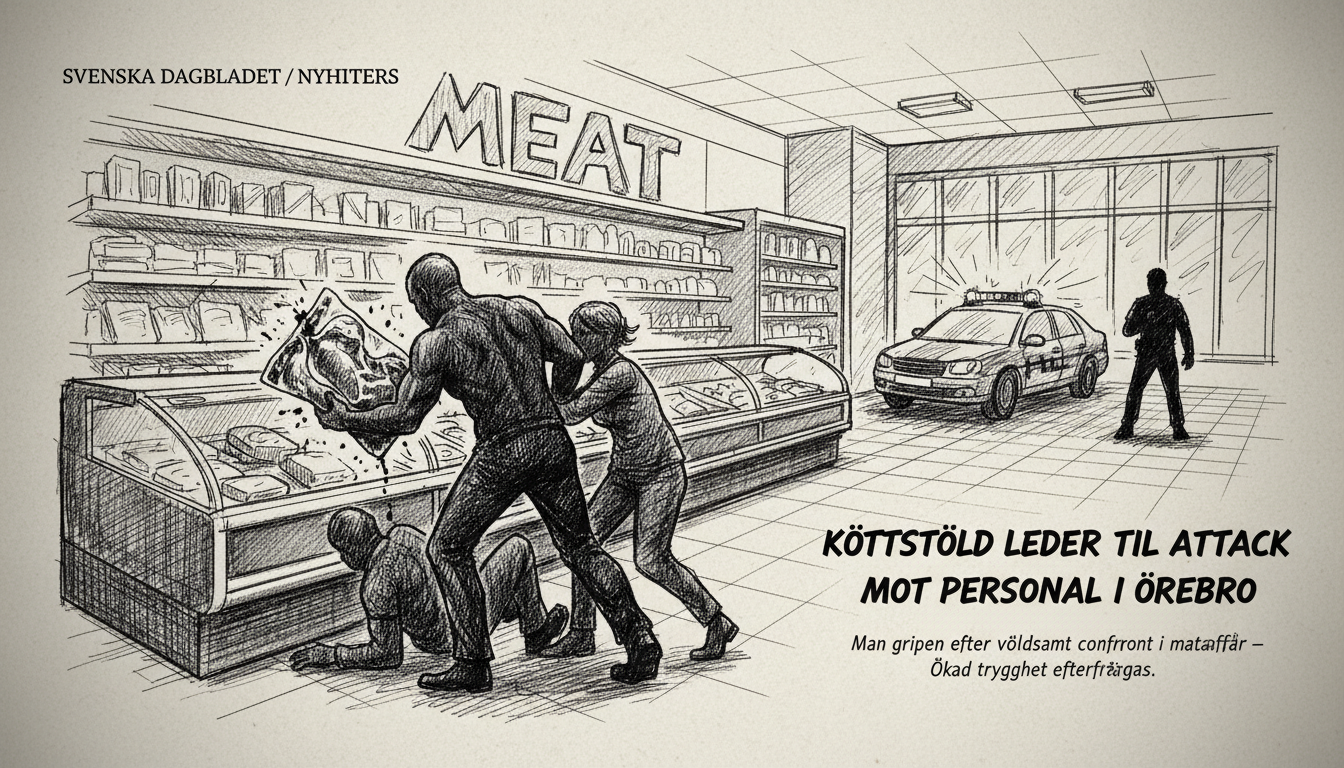A man attacked supermarket employees during a meat theft in central Sweden. The incident occurred in Örebro when store workers attempted to recover stolen goods.
Police arrested a man in his thirties following the confrontation. Officers responded to reports of a robbery where violence occurred. The suspect allegedly stole meat valued at approximately 500 Swedish kronor ($45).
When staff members tried to retrieve the stolen products, the man physically assaulted them. Police later apprehended the suspect in the surrounding area. Authorities confirmed the man used violence against store employees.
This incident highlights ongoing challenges Swedish retailers face with shoplifting and staff safety. Retail theft remains a persistent issue across Sweden, with supermarkets experiencing regular theft attempts. Many stores have implemented security measures, but confrontations still occur when employees intervene.
Sweden's approach to retail crime combines prevention with prosecution. Store employees receive training on handling theft situations safely. The legal system treats assaults on retail workers seriously, with potential prison sentences for violent offenses.
International readers might find the specific focus on meat theft interesting. In Sweden, high-value food items like meat frequently become theft targets due to their cost. This reflects broader economic pressures affecting consumer behavior.
The location of Örebro provides additional context. As Sweden's sixth largest city, it experiences typical urban crime patterns. The city sits in central Sweden's retail corridor, serving both urban and rural populations.
What happens next in this case? Swedish prosecutors will likely bring charges including theft and assault. The suspect faces potential penalties under Sweden's penal code. Store management may review security protocols following the incident.
Retail worker safety has gained increased attention in recent years. Swedish trade unions actively advocate for better protection of retail staff. Many stores now employ security personnel during peak hours.
This case represents a common but serious retail crime scenario. While most shoplifting incidents don't involve violence, confrontations can escalate quickly. The relatively low value of stolen goods contrasts with the serious nature of the assault.
For expats and international observers, this incident demonstrates Sweden's balanced approach to crime prevention. The country maintains relatively low crime rates while addressing retail theft systematically. Community policing and social programs work alongside traditional law enforcement.
The quick police response shows local authorities prioritize public safety. Örebro police maintained a visible presence in the area, enabling rapid intervention. This aligns with Sweden's community-oriented policing model.

